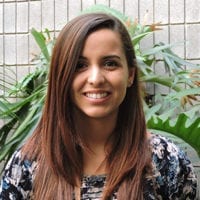
Elucidating the role of Arabidopsis organelle zinc finger proteins in RNA editing
Project Summary
In flowering plants, protein complexes called editosomes carry out cytosine (C) to uracil (U) editing of organelle transcripts by a deamination process. It alters the sequence of RNA transcripts, thus changing the genetic information encoded by a gene. RNA editing is essential for proper expression of many plastid and mitochondrial genes with accumulated T to C mutations, which would otherwise produce non-functional gene products. Uncovering the processes of RNA editing will provide the groundwork for applying site specific editing of RNA to genetically engineering of plants. Arabidopsis Organelle Zinc finger 1 (OZ1) was recently characterized as an essential component of plastid RNA editing. It belongs to a family of four members that were predicted or proven to be organelle targeted. OZ2 was shown to be essential for embryonic development, whereas the function of OZ3 and OZ4 has not been examined. In order to determine if OZ2, OZ3, and OZ4 are involved in plastid and/or mitochondrial RNA editing, we knocked down or knocked out the expression of OZ2, OZ3 or OZ4 using virus induced gene silencing and T-DNA insertional mutagenesis. Editing extents of leaves or embryos from mutant or silenced plants were assayed by bulk sequencing. We found that OZ2 mutation causes decrease of editing at a plastid site. Albino embryos collected from oz2 heterozygous plants showed increased editing efficiency at rpoC1 C488 in comparison to green embryos obtained from the same plant. Knockdown of OZ2, OZ3 or OZ4 did not result in editing defects on the transcripts assayed so far.
My Experience
Participating in the Plant Genomic Research Program was an invaluable experience, not only did I gain new research skills but I also learned what to expect in graduate school. In the Hanson lab I learned a variety of molecular techniques including RNA extraction/purification, RT-PCR, and bulk sequence analysis. All of my questions were invariably answered because I privileged to have multiple mentors, all of whom were supportive, humble and kind.
